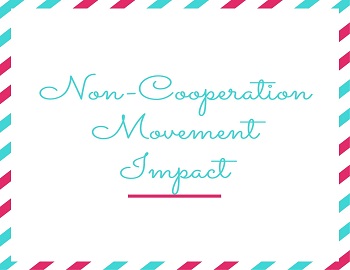Impact of the Non-Cooperation Movement:
The sudden suspension of the Non-Cooperation movement led to the demise of the Khilafat issue and the breakdown of the precariously balanced Hindu-Muslim harmony. Shortly, after the movement was called off, communalism became rampant all over the country and serious riots broke out. In Kerala, an anti-Zamindar bloodletting was witnessed when Muslim Moplah peasants turned on Hindu landlords and money-lenders. The communal situation became far worse during the years 1921-27 than it had been ever before.
Mahatma Gandhi’s promise to achieve Swaraj within a year of launching the movement was not fulfilled. The Punjab wrongs were also not redressed. Thus the Non-Cooperation movement failed to achieve any of its declared objectives. But its ultimate gain outweighed the immediate losses. The Congress had become a force to reckon with and thereafter it went from strength to strength. It generated a desire for freedom and inspired the people to challenge colonial rule.
The movement’s social impact was best reflected in the boycott of foreign goods that gave impetus to the indigenous industries, removal of untouchability and Khadi & Charkha became symbols of the national movement.









Comments (No)